The BEST episodes of NOVA season 40
Every episode of NOVA season 40, ranked from best to worst by thousands of votes from fans of the show. The best episodes of NOVA season 40!
Helps viewers of all ages explore the science behind the headlines.
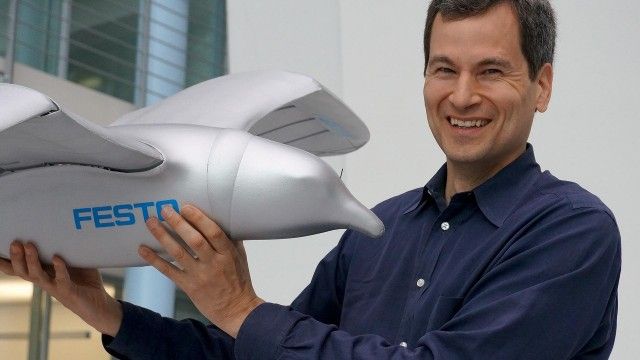
#1 - Making Stuff Wilder (2)
Season 40 - Episode 19 - Aired 10/23/2013
What happens when scientists open up nature's toolbox? In "Making Stuff Wilder," David Pogue explores bold new innovations inspired by the Earth's greatest inventor, life itself. From robotic "mules" and "cheetahs" for the military, to fabrics born out of fish slime, host David Pogue travels the globe to find the world’s wildest new inventions and technologies. It is a journey that sees today's microbes turned into tomorrow’s metallurgists, viruses building batteries, and ideas that change not just the stuff we make, but the way we make our stuff. As we develop our own new technologies, what can we learn from billions of years of nature’s research?
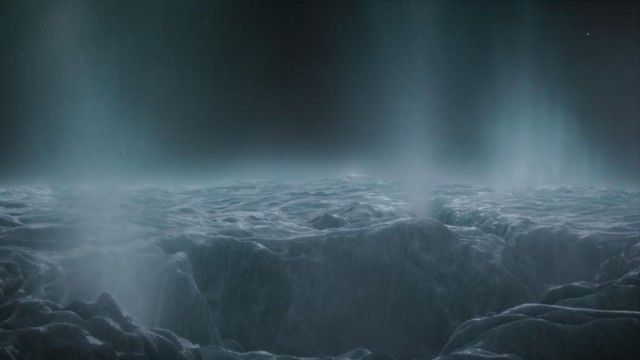
#2 - Megastorm Aftermath
Season 40 - Episode 17 - Aired 10/9/2013
In October 2012, superstorm Sandy cut a path of devastation across the Caribbean and the East Coast, killing hundreds and doing tens of billions of dollars in damage. Now, one year after Sandy’s deadly strike, NOVA follows up on its 2012 film “Inside the Megastorm” with a fresh investigation of the critical questions raised by this historic storm: Was Hurricane Sandy a freak combination of weather systems? Or are hurricanes increasing in intensity due to a changing climate and rising seas? How can we gird cities against future storm surges? Join NOVA on a trip to the Netherlands, a country which has combined extraordinary engineering with natural landscape restoration to protect its low-lying cities from the sea. And meet climate scientists who are racing to understand how a warming world will affect extreme—but unpredictable—weather phenomena like hurricanes and tornadoes. To many, Sandy was a wake-up call: One year later, are we still listening? And how will we answer?

#3 - Who Killed Lindbergh's Baby?
Season 40 - Episode 4 - Aired 1/30/2013
In the aftermath of his 1927 solo transatlantic flight, Colonel Charles Augustus Lindbergh–the Lone Eagle–became the most famous human being on earth. And when he and his lovely wife Anne produced an adorable baby son, Charlie, an eager press quickly dubbed him Little Lindy or sometimes just the Eaglet. But on the evening of March 1, 1932 Lucky Lindy's luck ran out. Bold kidnappers snatched his baby from the family home near Hopewell, New Jersey, while everyone in the house was awake. Negotiations with the kidnappers stretched out for weeks. But Little Charlie never came back. His body was discovered not five miles from Hopewell. Now, NOVA is reopening one of the most intriguing, grisly, and confounding crime mysteries of all time as a team of expert investigators employ state-of-the-art forensic and behavioral science techniques in an effort to determine what really happened to Lindbergh's baby and why.
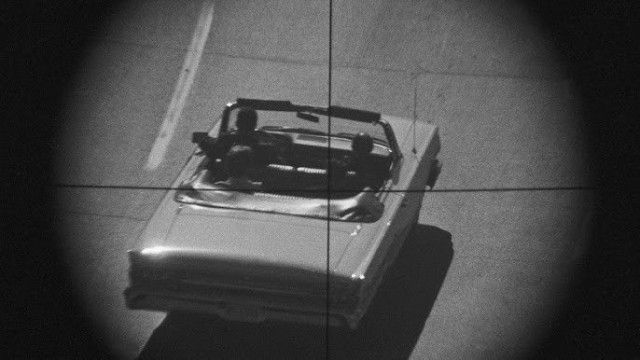
#4 - Cold Case JFK
Season 40 - Episode 22 - Aired 11/13/2013
For decades, the assassination of John F. Kennedy has fueled dark rumors of conspiracies and mishandled evidence. Now, fifty years later, NOVA asks: Could modern investigators do better? We’ll see how state-of-the art forensic tools would be applied to the investigation were it to happen today. At the same time, NOVA takes a critical look at contemporary cases, like the murders of Nicole Brown Simpson and Ronald Goldman, to reveal how charges of evidence mishandling and human error can mar even scientifically sophisticated detective work. Will forensics ever be truly foolproof, or does modern technology just give a scientific sheen to a practice that will always be more art than science?

#5 - Decoding Neanderthals
Season 40 - Episode 2 - Aired 1/9/2013
Examining evidence about Neanderthals that sheds light on the hominids, which died off some 30,000 years ago. Included: geneticist Svante Pääbo's 2010 reconstruction of the Neanderthal genome, which posits that modern humans and Neanderthals interbred at some point in the distant past.
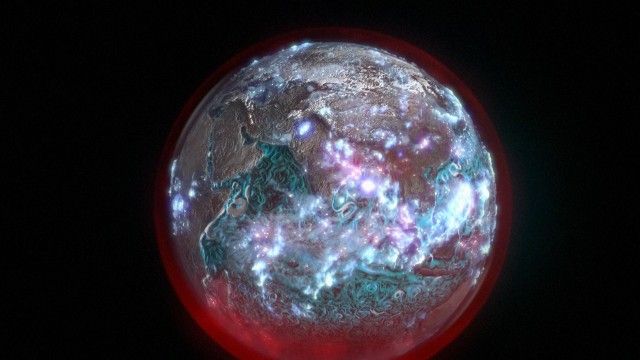
#6 - Earth From Space
Season 40 - Episode 6 - Aired 2/13/2013
"Earth From Space" is a groundbreaking two-hour special that reveals a spectacular new space-based vision of our planet. Produced in extensive consultation with NASA scientists, NOVA takes data from earth-observing satellites and transforms it into dazzling visual sequences, each one exposing the intricate and surprising web of forces that sustains life on earth. Viewers witness how dust blown from the Sahara fertilizes the Amazon; how a vast submarine "waterfall" off Antarctica helps drive ocean currents around the world; and how the sun's heating up of the southern Atlantic gives birth to a colossally powerful hurricane. From the microscopic world of water molecules vaporizing over the ocean to the magnetic field that is bigger than Earth itself, the show reveals the astonishing beauty and complexity of our dynamic planet.
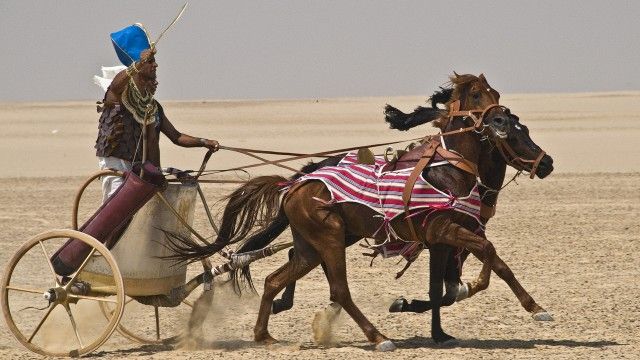
#7 - Building Pharaoh's Chariot
Season 40 - Episode 5 - Aired 2/6/2013
3,600-year-old reliefs in Egyptian tombs and temples depict pharaohs and warriors proudly riding into battle on horse-drawn chariots. Some historians claim that the chariot launched a technological and strategic revolution, and was the secret weapon behind Egypt's greatest era of conquest known as the New Kingdom. But was the Egyptian chariot really a revolutionary design? How decisive a role did it play in the bloody battles of the ancient world? In "Building Pharaoh's Chariot," a team of archaeologists, engineers, woodworkers, and horse trainers join forces to build and test two highly accurate replicas of Egyptian royal chariots. They discover astonishingly advanced features, including spoked wheels, springs, shock absorbers, anti-roll bars, and even a convex-shaped rear mirror, leading one of them to compare the level of design to the engineering standards of 1930's-era Buicks! By driving our pair of replicas to their limits in the desert outside Cairo, NOVA's experts test the claim that the chariot marks a crucial turning point in ancient military history.
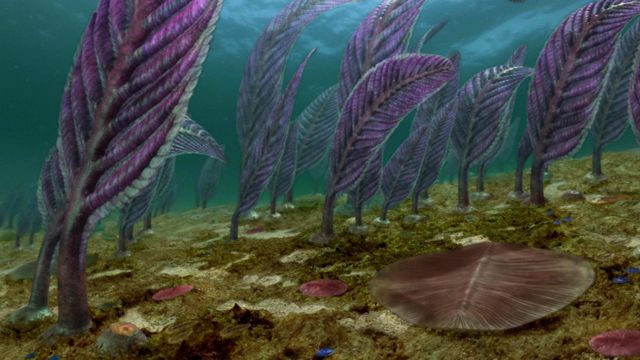
#8 - Australia's First 4 Billion Years - Life Explodes
Season 40 - Episode 10 - Aired 4/17/2013
How did life storm the beaches and dominate planet Earth? Ancient Australian fossils offer clues in "Life Explodes." Half a billion years ago, Australia was still part of the super-continent Gondwana. The oceans were teeming with weird and wonderful animals, but the world above the waves remained an almost lifeless wasteland. All that was about to change, though. Host Richard Smith introduces Earth's forgotten pioneers: the scuttling arthropod armies that invaded the shores and the waves of green revolutionaries whose battle for the light pushed plant life across the face of a barren continent. Evolution continued underwater as well, with armor-plated fish experimenting with teeth, jaws, sex, and lungs. NOVA's prehistoric adventure continues with four-legged animals walking onto dry land—and the planet poised for disaster.

#9 - Manhunt - Boston Bombers
Season 40 - Episode 14 - Aired 5/29/2013
NOVA follows the manhunt for the 2013 Boston Marathon bombers examining the role modern technology played in the case.
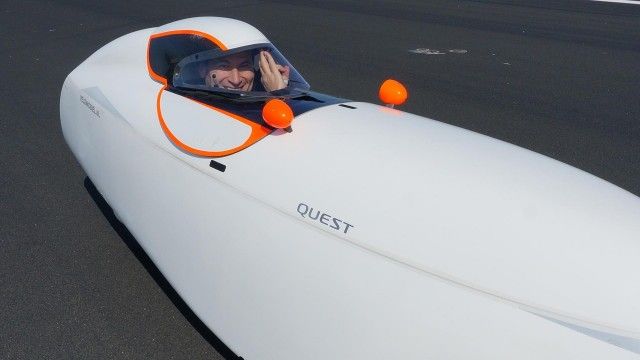
#10 - Making Stuff Faster (1)
Season 40 - Episode 18 - Aired 10/16/2013
Ever since humans stood on two feet we have had the basic urge to go faster. But are there physical limits to how fast we can go? David Pogue wants to find out, and in "Making Stuff Faster," he’ll investigate everything from electric muscle cars and the America’s cup sailboat to bicycles that smash speed records. Along the way, he finds that speed is more than just getting us from point A to B, it's also about getting things done in less time. From boarding a 737 to pushing the speed light travels, Pogue's quest for ultimate speed limits takes him to unexpected places where he’ll come face-to-face with the final frontiers of speed.
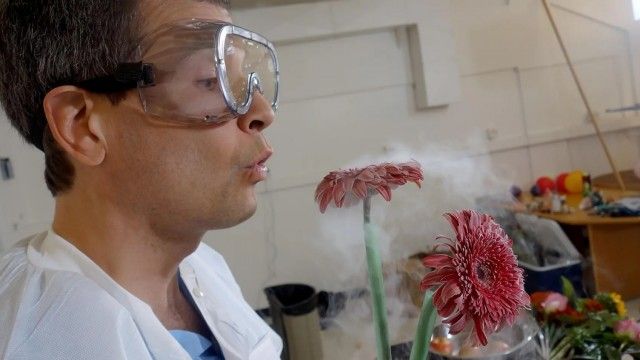
#11 - Making Stuff Colder (3)
Season 40 - Episode 20 - Aired 10/30/2013
Cold is the new hot in this brave new world. For centuries we've fought it, shunned it, and huddled against it. Cold has always been the enemy of life, but now it may hold the key to a new generation of science and technology that will improve our lives. In "Making Stuff Colder," David Pogue explores the frontiers of cold science from saving the lives of severe trauma patients to ultracold physics, where bizarre new properties of matter are the norm and the basis of new technologies like levitating trains and quantum computers.

#12 - Ancient Computer
Season 40 - Episode 7 - Aired 4/3/2013
In 1900, Greek sponge divers discovered a 2,000 year-old shipwreck containing a geared bronze mechanism whose workings have puzzled scientists for decades. New hi-tech imaging has revealed that this clockwork machine was the world's first computer.

#13 - Ground Zero Supertower
Season 40 - Episode 16 - Aired 9/11/2013
NOVA kicks off the fall season with a return to Ground Zero to witness the final chapter in an epic story of engineering, innovation, and the perseverance of the human spirit. “Ground Zero Supertower” examines the new skyscraper, One World Trade Center, rising up 104 stories and 1,776 feet from the site where the Twin Towers once stood. NOVA also goes underground to see another engineering marvel taking shape here: the construction of the National September 11 Memorial Museum that will house almost a thousand artifacts from that devastating day. In this update of NOVA’s Emmy-nominated special “Engineering Ground Zero,” which featured extraordinary behind-the-scenes access to the struggles of the engineers and architects working at 1 WTC and the 9/11 Memorial, NOVA goes inside the construction of the tower’s final floors and the installation of its soaring, 408-foot spire and beacon. The greatest test is still to come, though: Will One World Trade Center, a multi-billion dollar supertower, live up to its promise to be safe, beautiful and ahead of its time?

#14 - Rise of the Drones
Season 40 - Episode 3 - Aired 1/23/2013
Drones. These unmanned flying robots–some as large as jumbo jets, others as small as birds–do things straight out of science fiction. Much of what it takes to get these robotic airplanes to fly, sense, and kill has remained secret. But now, with rare access to drone engineers and those who fly them for the U.S. military, NOVA reveals the amazing technologies that make drones so powerful as we see how a remotely-piloted drone strike looks and feels from inside the command center. From cameras that can capture every detail of an entire city at a glance to swarming robots that can make decisions on their own to giant air frames that can stay aloft for days on end, drones are changing our relationship to war, surveillance, and each other. And it's just the beginning. Discover the cutting edge technologies that are propelling us toward a new chapter in aviation history as NOVA gets ready for "Rise of the Drones."
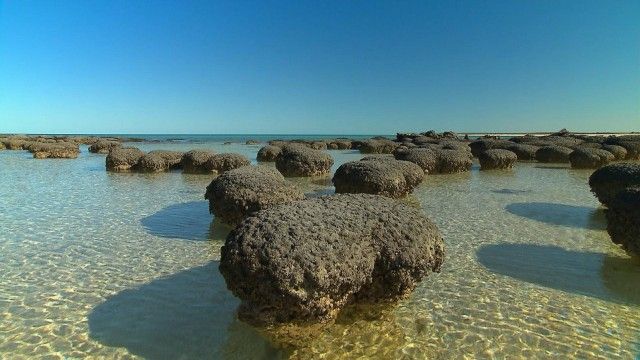
#15 - Australia's First 4 Billion Years - Awakening
Season 40 - Episode 9 - Aired 4/10/2013
What can Australia reveal about how Earth was born and how life took hold? Join NOVA and host Dr. Richard Smith as they journey back to the very beginning of the Australian story in "Awakening." The first stop is Western Australia, around four and a half billion years ago, where we encounter an Earth shortly after its fiery birth. Hidden in the red hills of Australia are clues to the mysteries of when the Earth was born, how life first arose, and how it transformed the planet. Experts unveil how the earliest forms of life—an odd assortment of bacterial slime—flooded the atmosphere with oxygen, sparking the biological revolution that made animal life possible. It is the beginning of the great drama of life on Earth.
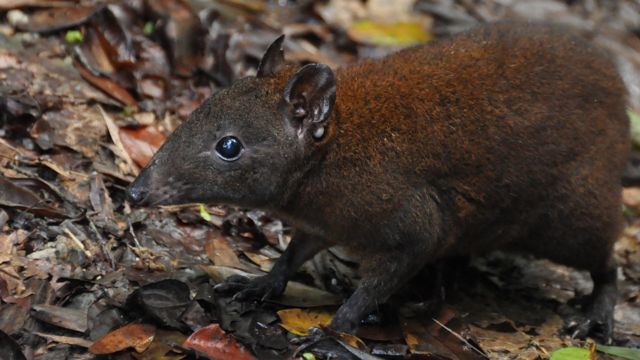
#16 - Australia's First 4 Billion Years - Strange Creatures
Season 40 - Episode 12 - Aired 5/1/2013
In the wake of the catastrophic asteroid impact believed to have wiped out the dinosaurs, Australia was set adrift on a lonely voyage across southern seas. With host Richard Smith, NOVA travels the walkabout continent to uncover how it became the strange land it is today. In this final episode, "Strange Creatures," NOVA traces the last 65 million years, revealing the events that shaped the Australia we know today. Prehistoric jungles retreated, replaced by eucalypt forests, grasslands, and deserts. When humans first arrived, giant marsupials dominated the land and the Great Barrier Reef was yet to form. This is a tale of calamity and conquest; how a conspiracy of climate, biology, and geology shaped the Earth we now call home.

#17 - Mind of a Rampage Killer
Season 40 - Episode 8 - Aired 2/20/2013
What makes a person walk into a theater or a church or a classroom full of students and open fire? What combination of circumstances compels a human being to commit the most inhuman of crimes? Can science in any way help us understand these horrific events and provide any clues as to how to prevent them in the future? As the nation tries to understand the tragic events at Newtown, NOVA correspondent Miles O’Brien separates fact from fiction, investigating new theories that the most destructive rampage killers are driven most of all, not by the urge to kill, but the wish to die. Could suicide–and the desire to go out in a media-fueled blaze of glory–be the main motivation? How much can science tell us about the violent brain? Most importantly, can we recognize dangerous minds in time—and stop the next Newtown?
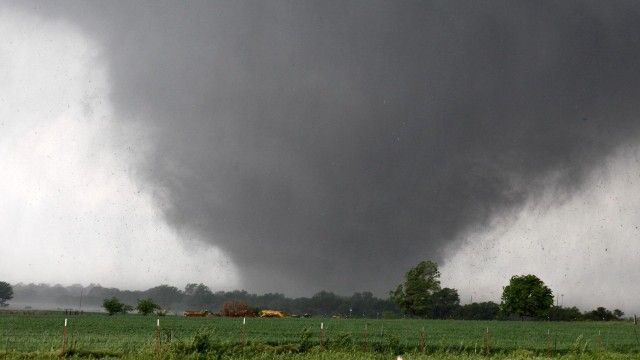
#18 - Oklahoma's Deadliest Tornadoes
Season 40 - Episode 15 - Aired 5/29/2013
On May 20, 2013, a ferocious EF5 tornado over a mile wide tore through Moore, Oklahoma, inflicting 24 deaths and obliterating entire neighborhoods. It was the third time an exceptionally violent tornado had struck the city in 14 years. Yet predicting when and where these killer storms will hit still poses a huge challenge. Why was 2011—the worst ever recorded tornado season that left 158 dead in Joplin, Missouri—followed by the quietest ever year of activity prior to the Moore disaster? Can improved radar and warning technology explain why so many fewer died in Moore than in Joplin? And will tornadoes get worse as Earth's climate heats up? In this NOVA special, we meet scientists in the front ranks of the battle to understand these extreme weather events. We also meet storm survivors whose lives have been upended and learn how we can protect ourselves and our communities for the uncertain future.
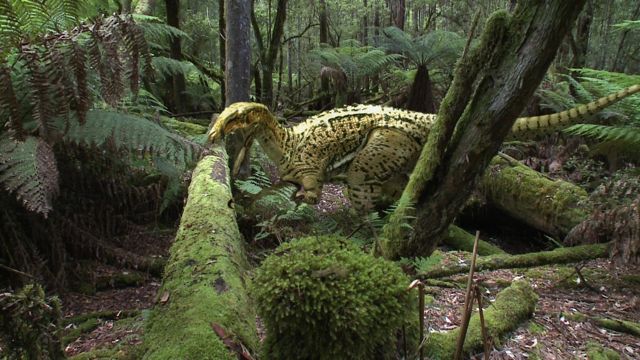
#19 - Australia's First 4 Billion Years - Monsters
Season 40 - Episode 11 - Aired 4/24/2013
"Monsters" begins Down Under at the dawn of the Age of Dinosaurs. Host Richard Smith comes face-to-face with the previously unknown reptilian rulers of prehistoric Australia. NOVA resurrects the giants that stalked the Great Southern Land and discovers that some of these animals were among the largest ever to have walked the Earth. Others were some of the most dangerous. In the dry desert heart, scientists unearth an ancient inland ocean full of sea monsters. Opal fossils of some of these beasts paint a colorful picture of the exotic seascape, where long-necked plesiosaurs snacked on shelled creatures that grew as large as truck tires. The most fearsome was Kronosaurus, with a skull twice as long as T. rex. But reptiles didn't have the world all to themselves. Mammals like the enigmatic platypus lived alongside them, ready for their moment in the sun.
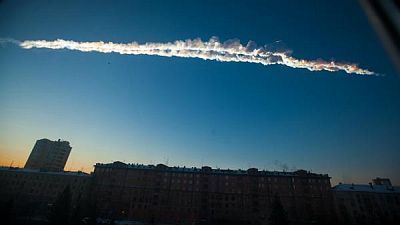
#20 - Meteor Strike
Season 40 - Episode 13 - Aired 3/27/2013
On February 15, 2013, a 7,000-ton asteroid crashed into the Earth's atmosphere over Russia with the power of 30 Hiroshima bombs. Within days, NOVA crews joined impact scientists in Russia as they hunted for clues about the meteor's origin and makeup.
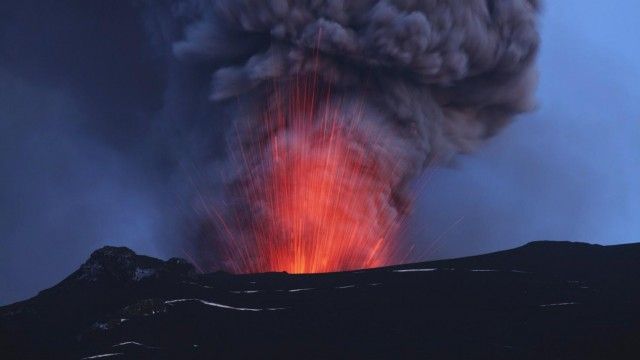
#21 - Doomsday Volcanoes
Season 40 - Episode 1 - Aired 1/2/2013
In April, 2010 the eruption of Iceland's Eyjafjallajökull volcano turned much of Europe into an ash-strewn no-fly zone, stranding millions of travelers. But was Eyjafjallajökull just the start? Now, an even more threatening Icelandic volcano, Katla, has begun to swell and grumble. Two more giants, Hekla and Laki, could erupt without warning. Iceland is a ticking time bomb: When it blows, the consequences could be global. As CGI takes us inside these geological monsters, we meet atmospheric scientists who are working to understand just how devastating an eruption could be—not just for air travel but for the global food supply and for Earth's climate. Could we be plunged into years of cold and famine? What can we do to prepare for the disaster to come?
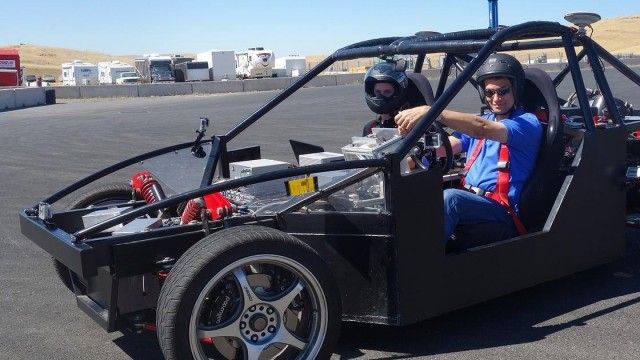
#22 - Making Stuff Safer (4)
Season 40 - Episode 21 - Aired 11/6/2013
The world has always been a dangerous place, so how do we increase our odds of survival? In "Making Stuff Safer," David Pogue explores the cutting-edge research of scientists and engineers who want to keep us out of harm’s way. Some are countering the threat of natural disasters with new firefighting materials and safer buildings. Others are at work on technologies to thwart terrorist attacks. A next-generation vaccine will save millions from deadly disease. And innovations like smarter cars and better sports gear will reduce the risk of everyday activities. We’ll never eliminate danger—but science and technology are making stuff safer.
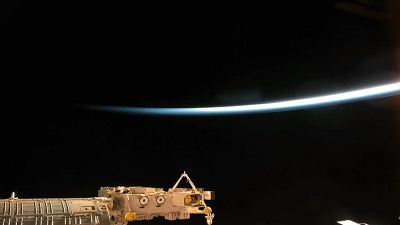
#23 - At the Edge of Space
Season 40 - Episode 23 - Aired 11/20/2013
Between the blue sky above and the infinite blackness beyond lies a frontier that scientists have only just begun to investigate. In "At the Edge of Space," NOVA takes viewers on a spectacular exploration of the Earth-space boundary that's home to some of nature's most puzzling and alluring phenomena: the shimmering aurora, streaking meteors, and fleeting flashes that shoot upwards from thunderclouds, known as sprites. Only discovered in 1989, sprites have eluded capture because they exist for a mere split-second—40-times faster than an eye blink. NOVA rides with scientists in a high-flying weather observation plane on a hunt for sprites, finally snaring them in 3D video and gaining vital clues to unraveling their mystery. Combining advanced video technology with stunning footage shot from the International Space Station, "At the Edge of Space" probes the boundary zone and offers an entirely new perspective on our home planet.
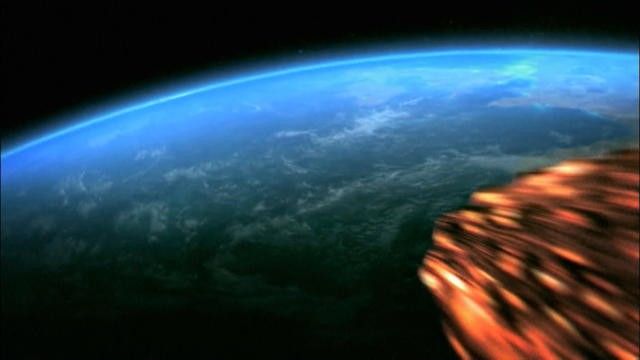
#24 - Asteroid: Doomsday or Payday?
Season 40 - Episode 24 - Aired 11/20/2013
The asteroid that exploded over Siberia—injuring more than 1,000 and damaging buildings in six cities—was a shocking reminder that Earth is a target in a cosmic shooting range. From the width of a football field to the size of a small city, these space rocks have the potential to be killers. In a collision with Earth, they could set off deadly blast waves, raging fires and colossal tidal waves. But some audacious entrepreneurs look up at asteroids and see payday, not doomsday. Some asteroids are loaded with billions of dollars’ worth of elements like iron, nickel, and platinum. NASA is planning an ambitious mission to return samples from a potentially hazardous asteroid, and would-be asteroid miners are dreaming up their own program to scout for potentially profitable asteroids. Will asteroids turn out to be our economic salvation—or instruments of extinction?